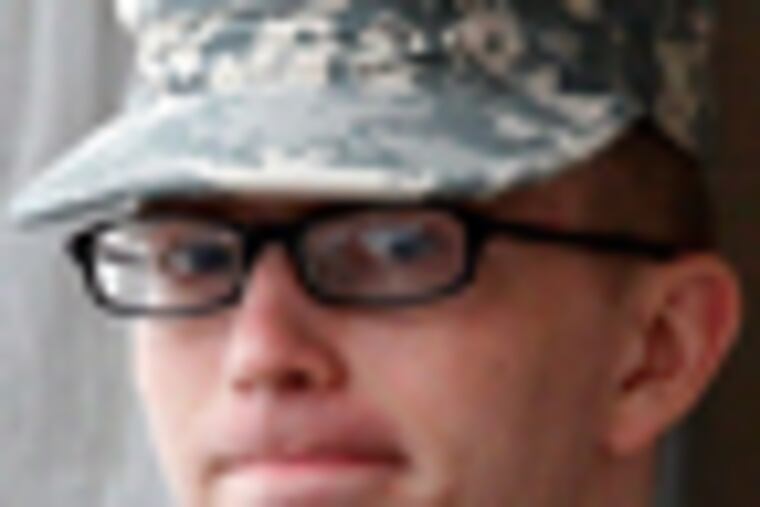Manning defense rests after two testify
FORT MEADE, Md. - Lawyers for the Army intelligence analyst blamed for the biggest national security leak in U.S. history briskly presented the entirety of his defense Wednesday, a year-and-half after the private allegedly handed a trove of classified data to WikiLeaks.

FORT MEADE, Md. - Lawyers for the Army intelligence analyst blamed for the biggest national security leak in U.S. history briskly presented the entirety of his defense Wednesday, a year-and-half after the private allegedly handed a trove of classified data to WikiLeaks.
Pfc. Bradley Manning's defense rested its case after calling only two witnesses, who testified about his behavioral problems and lax security controls on the computers in his Baghdad office.
The hearing was recessed until closing arguments Thursday, after which the case's presiding officer will have until Jan. 16 to recommend whether Manning should be court-martialed for aiding the enemy and a score of other charges.
Called before the judge Wednesday were a sergeant who saw one of Manning's fits of rage in Baghdad and a captain who oversaw the private and his coworkers there in late 2009. The defense has painted Manning as a troubled man who shouldn't have had access to classified material, let alone served in Iraq, and has asserted that security at his workplace was weak.
During the proceedings, Manning, 24, appeared composed as witnesses talked about his emotional problems, his difficulties as a gay soldier during the military's "don't ask, don't tell" era, and his violent outbursts while in the United States and then during his tour of duty in Iraq from late 2009 to mid-2010.
Manning was part of a three-soldier skeleton crew working the night shift in a restricted area with computers connected to the military's supposedly secure network for sharing classified information. But witnesses said soldiers routinely accessed music, movies and computer games over the network.
"I remember thinking that was something we shouldn't be so liberal about," said Capt. Barclay Keay, who was in charge of a night shift Manning worked for a few weeks in late 2009. He learned that such activities were an accepted practice on the war front.
Manning allegedly downloaded hundreds of thousands of State Department diplomatic cables onto a rewritable CD labeled "Lady Gaga." He also is accused of sending hundreds of thousands of classified military reports and a video of a deadly U.S. helicopter attack to the website WikiLeaks, which shared the information with the world.
Keay's impression of Manning was that he was a good soldier who "did good analytical work."
But Sgt. Daniel Padgett, one of Manning's supervisors, recalled sitting down with Manning for a "counseling session" after the soldier was late for work.
When Padgett tried to impress on Manning the importance of being on time, "his demeanor changed," Padgett testified. He said Manning then stood up and overturned a table, spilling a radio and computer onto the floor. Padgett said he moved Manning away from a gun rack while someone else restrained him until he calmed down.